Why Swimming Lessons Are Crucial for Kids
In the tapestry of childhood development, swimming lessons are a vital thread that supports physical, mental, and social growth. Through regular swimming sessions, children build muscle strength, improve cardiovascular health, and enhance coordination. Mentally, they develop confidence, discipline, and focus, while socially, they learn teamwork and communication skills. This blog post will explore why early swimming lessons are crucial, debunk common myths such as the belief that very young children can't learn to swim effectively, guide you in choosing the right program tailored to your child's needs, and offer practical tips to make the learning process both fun and safe. From understanding the importance of certified instructors to creating a positive and encouraging environment, we'll cover everything you need to dive into this essential aspect of your child's growth.
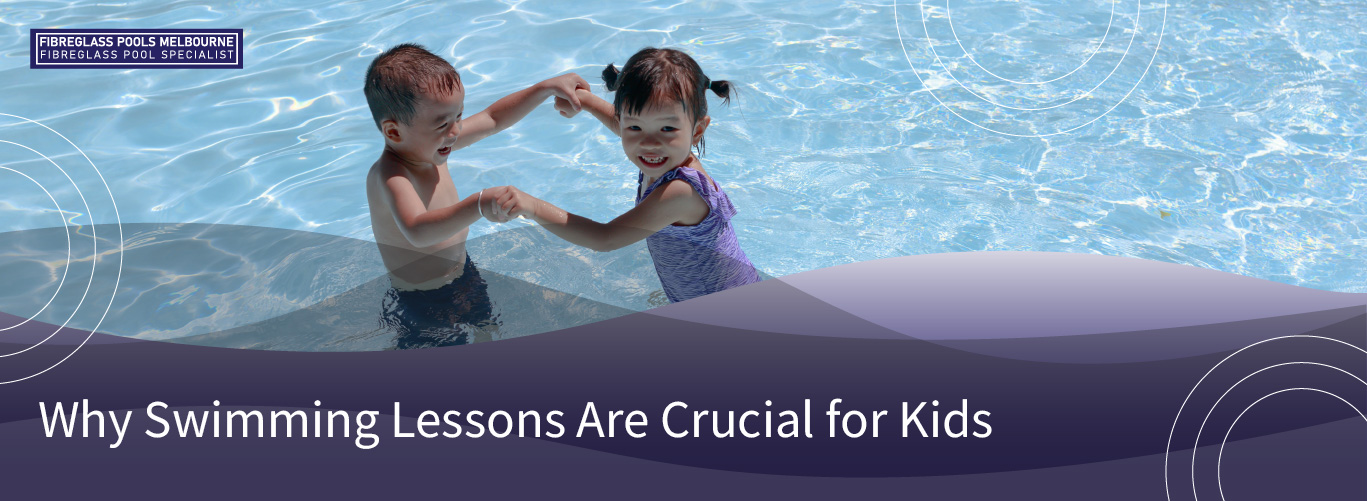
The Benefits of Early Swimming Lessons
Physical Benefits
Swimming is an excellent full-body workout. For young children, it promotes muscle development, improves cardiovascular health, and enhances coordination.
Mental Benefits
The mental benefits of swimming are equally compelling. Regular swimming lessons can boost a child’s self-esteem and confidence. Overcoming the fear of water and learning new skills fosters a sense of achievement. Studies show that children who swim regularly tend to perform better academically due to improved concentration and cognitive function.
Social Benefits
Swimming lessons provide a social playground where children can interact with peers. These interactions help develop crucial social skills like teamwork, empathy, and communication.
Factors to Consider
Myth 1: Swimming Lessons Are Unsafe for Young Children
Swimming lessons are very safe for young children when conducted by professionals. Trained instructors ensure a safe environment where children learn at their own pace with age-appropriate techniques and constant supervision. These lessons often include essential water safety education, mitigating risks associated with water activities.
Myth 2: Children Will Naturally Learn to Swim Without Formal Lessons
While some children may develop basic swimming skills on their own, formal lessons provide structured learning to ensure they acquire essential safety and swimming techniques. This reduces the risk of drowning, a leading cause of accidental death among children. Instructors teach children how to float, tread water, and perform basic strokes, giving them confidence and skills for safe water enjoyment.
Myth 3: Swimming Lessons Are Only for Recreational Purposes
Swimming is more than just fun; it’s a life-saving skill. Early lessons equip children to handle themselves in water, significantly reducing drowning risks. The physical and mental benefits extend beyond the pool, enhancing cardiovascular health, muscle strength, and coordination. Swimming also fosters social skills and boosts self-esteem as children engage and succeed in a group learning environment.
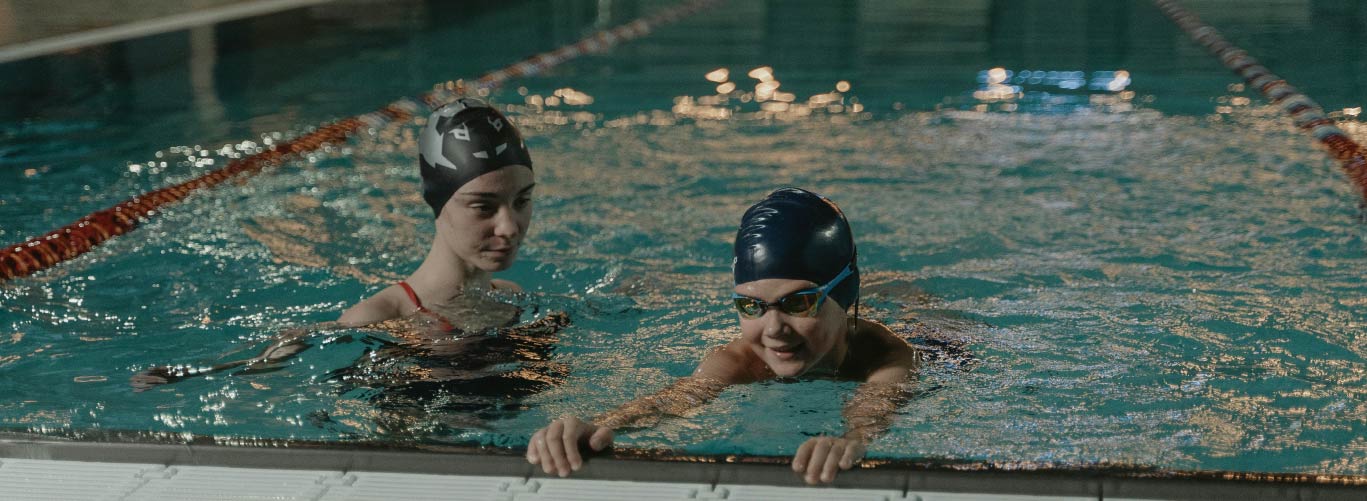
Choosing the Right Program
Factors to Consider
Choosing the right swimming program involves several factors. First, look for certified instructors who specialise in teaching young children and have a proven success record. The facility should be clean, well-maintained, and equipped with safety measures like lifeguards on duty and first-aid kits. Also, consider class size; smaller classes offer more individual attention, leading to better learning and safety.
Practical Tips for Parents
To maximise the swimming lessons, parents should actively engage. Attend classes, observe teaching methods, and communicate with instructors to stay updated on your child’s progress. Positive reinforcement and encouragement can greatly enhance the learning experience. Practice swimming techniques with your child outside of lessons to reinforce what they’ve learned. Frequent visits to the pool can help your child become more comfortable and confident in the water.
Safety First Importance of Supervision
Role of Parental Supervision
While professional swimming lessons provide a safe learning environment with trained instructors and controlled settings, parental supervision remains crucial. It’s essential to always keep an eye on your child during swimming sessions, even if a lifeguard is present. Engage with your child and ensure they understand the importance of safety rules, such as not running near the pool and avoiding rough play. Reinforce the lessons learned in class by practising water safety at home, such as floating techniques and proper entry and exit from the pool.
Water Safety Practices
Teaching children about water safety goes beyond the swimming pool and includes a variety of environments and scenarios. Educate them about the dangers of open water bodies like lakes, rivers, and oceans, where conditions can be unpredictable. Equip them with life jackets that fit properly and ensure they understand the importance of never swimming alone or without adult supervision. Discuss potential hazards like strong currents, sudden drop-offs, and changing weather conditions. These practices can significantly reduce the risk of water-related accidents and help children develop a respect for water safety that will last a lifetime.
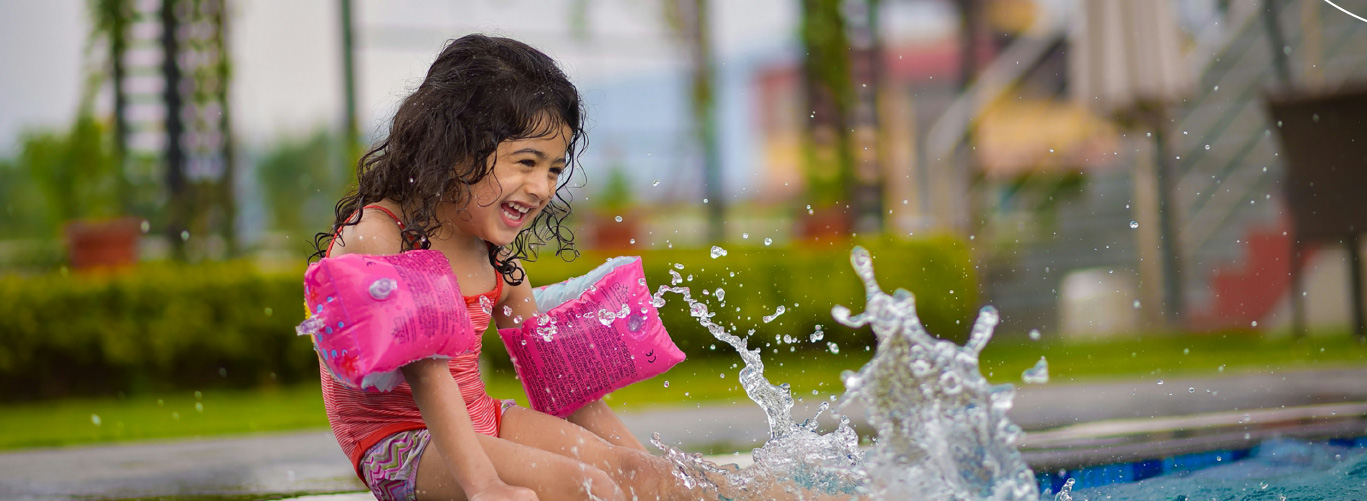
Making It Fun Engaging Kids in Learning
Creative Teaching Methods
Children learn best when they are having fun. Incorporate games and playful activities into swimming lessons to keep them engaged and motivated. Techniques like using colorful toys, singing songs, and organising relay races can make learning enjoyable and dynamic. For example, colourful floating toys can teach children how to float on their backs, while singing songs can help them practice rhythmic breathing. Instructors can also use storytelling to teach swimming techniques, making lessons more relatable and memorable. For instance, they might tell a story about a fish learning different strokes to navigate an underwater adventure.
Encouraging Consistent Practice
Consistency is key to mastering swimming. Encourage your child to practice regularly, even outside formal lessons. Make pool visits a routine family activity, where everyone enjoys the water together. This reinforces skills and strengthens family bonds. Make these trips engaging by setting up fun challenges like who can hold their breath the longest or swim the farthest underwater. Also, consider enrolling your child in swimming clubs or community programs where they can practice with peers, enhancing their skills and confidence through social interaction and teamwork.
Conclusion
Early swimming lessons offer a treasure trove of benefits that extend far beyond the pool. From physical fitness and mental well-being to social skills and water safety, the advantages are manifold. For parents, investing in early swimming lessons means equipping your child with a life-saving skill and fostering holistic development. If you’re ready to take the plunge, explore local swimming programs and choose one that aligns with your child’s needs and your family’s values. Remember, the earlier you start, the sooner your child will reap the rewards.
Why Swimming Lessons Are Crucial for Kids
In the tapestry of childhood development, swimming lessons are a vital thread that supports physical, mental, and social growth. Through regular swimming sessions, children build muscle strength, improve cardiovascular health, and enhance coordination. Mentally, they develop confidence, discipline, and focus, while socially, they learn teamwork and communication skills. This blog post will explore why early swimming lessons are crucial, debunk common myths such as the belief that very young children can't learn to swim effectively, guide you in choosing the right program tailored to your child's needs, and offer practical tips to make the learning process both fun and safe. From understanding the importance of certified instructors to creating a positive and encouraging environment, we'll cover everything you need to dive into this essential aspect of your child's growth.
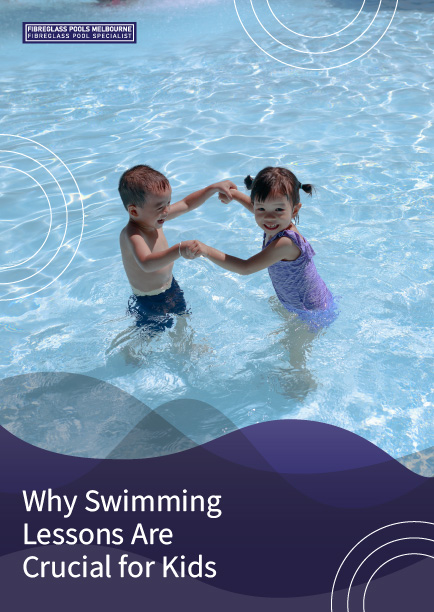
The Benefits of Early Swimming Lessons
Physical Benefits
Swimming is an excellent full-body workout. For young children, it promotes muscle development, improves cardiovascular health, and enhances coordination.
Mental Benefits
The mental benefits of swimming are equally compelling. Regular swimming lessons can boost a child’s self-esteem and confidence. Overcoming the fear of water and learning new skills fosters a sense of achievement. Studies show that children who swim regularly tend to perform better academically due to improved concentration and cognitive function.
Social Benefits
Swimming lessons provide a social playground where children can interact with peers. These interactions help develop crucial social skills like teamwork, empathy, and communication.
Factors to Consider
Myth 1: Swimming Lessons Are Unsafe for Young Children
Swimming lessons are very safe for young children when conducted by professionals. Trained instructors ensure a safe environment where children learn at their own pace with age-appropriate techniques and constant supervision. These lessons often include essential water safety education, mitigating risks associated with water activities.
Myth 2: Children Will Naturally Learn to Swim Without Formal Lessons
While some children may develop basic swimming skills on their own, formal lessons provide structured learning to ensure they acquire essential safety and swimming techniques. This reduces the risk of drowning, a leading cause of accidental death among children. Instructors teach children how to float, tread water, and perform basic strokes, giving them confidence and skills for safe water enjoyment.
Myth 3: Swimming Lessons Are Only for Recreational Purposes
Swimming is more than just fun; it’s a life-saving skill. Early lessons equip children to handle themselves in water, significantly reducing drowning risks. The physical and mental benefits extend beyond the pool, enhancing cardiovascular health, muscle strength, and coordination. Swimming also fosters social skills and boosts self-esteem as children engage and succeed in a group learning environment.
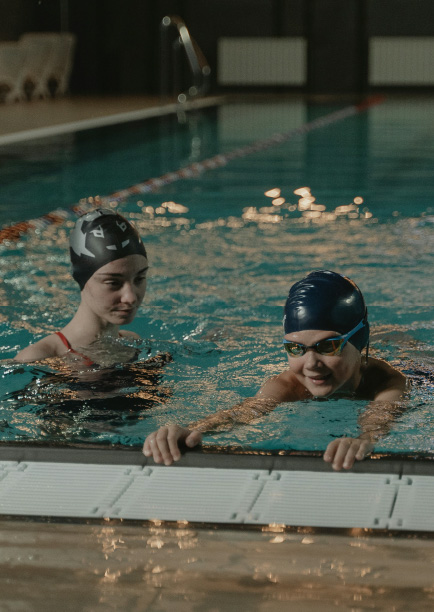
Choosing the Right Program
Factors to Consider
Choosing the right swimming program involves several factors. First, look for certified instructors who specialise in teaching young children and have a proven success record. The facility should be clean, well-maintained, and equipped with safety measures like lifeguards on duty and first-aid kits. Also, consider class size; smaller classes offer more individual attention, leading to better learning and safety.
Practical Tips for Parents
To maximise the swimming lessons, parents should actively engage. Attend classes, observe teaching methods, and communicate with instructors to stay updated on your child’s progress. Positive reinforcement and encouragement can greatly enhance the learning experience. Practice swimming techniques with your child outside of lessons to reinforce what they’ve learned. Frequent visits to the pool can help your child become more comfortable and confident in the water.
Safety First Importance of Supervision
Role of Parental Supervision
While professional swimming lessons provide a safe learning environment with trained instructors and controlled settings, parental supervision remains crucial. It’s essential to always keep an eye on your child during swimming sessions, even if a lifeguard is present. Engage with your child and ensure they understand the importance of safety rules, such as not running near the pool and avoiding rough play. Reinforce the lessons learned in class by practising water safety at home, such as floating techniques and proper entry and exit from the pool.
Water Safety Practices
Teaching children about water safety goes beyond the swimming pool and includes a variety of environments and scenarios. Educate them about the dangers of open water bodies like lakes, rivers, and oceans, where conditions can be unpredictable. Equip them with life jackets that fit properly and ensure they understand the importance of never swimming alone or without adult supervision. Discuss potential hazards like strong currents, sudden drop-offs, and changing weather conditions. These practices can significantly reduce the risk of water-related accidents and help children develop a respect for water safety that will last a lifetime.
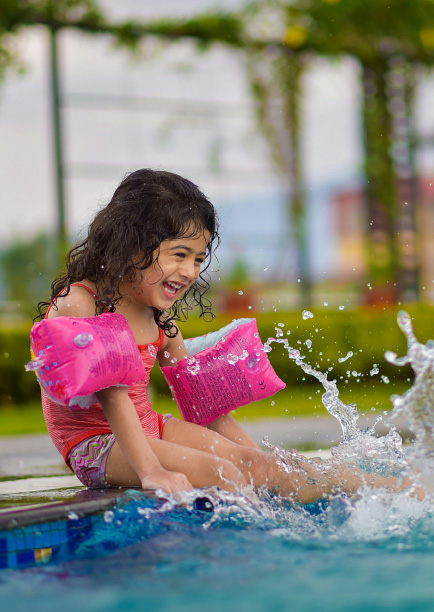
Making It Fun Engaging Kids in Learning
Creative Teaching Methods
Children learn best when they are having fun. Incorporate games and playful activities into swimming lessons to keep them engaged and motivated. Techniques like using colorful toys, singing songs, and organising relay races can make learning enjoyable and dynamic. For example, colourful floating toys can teach children how to float on their backs, while singing songs can help them practice rhythmic breathing. Instructors can also use storytelling to teach swimming techniques, making lessons more relatable and memorable. For instance, they might tell a story about a fish learning different strokes to navigate an underwater adventure.
Encouraging Consistent Practice
Consistency is key to mastering swimming. Encourage your child to practice regularly, even outside formal lessons. Make pool visits a routine family activity, where everyone enjoys the water together. This reinforces skills and strengthens family bonds. Make these trips engaging by setting up fun challenges like who can hold their breath the longest or swim the farthest underwater. Also, consider enrolling your child in swimming clubs or community programs where they can practice with peers, enhancing their skills and confidence through social interaction and teamwork.
Conclusion
Early swimming lessons offer a treasure trove of benefits that extend far beyond the pool. From physical fitness and mental well-being to social skills and water safety, the advantages are manifold. For parents, investing in early swimming lessons means equipping your child with a life-saving skill and fostering holistic development. If you’re ready to take the plunge, explore local swimming programs and choose one that aligns with your child’s needs and your family’s values. Remember, the earlier you start, the sooner your child will reap the rewards.


